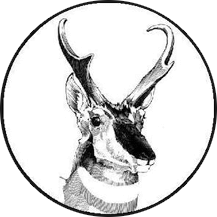 The 2018 awardee of the Hartley H. T. Jackson Award for service to ASM is Duane A. Schlitter, a long-time Curator of Mammals at the Carnegie Museum of Natural History in Pittsburgh. Dr. Schlitter has been a member of ASM for most of his professional life. He has served ASM as Secretary-Treasurer, was elected to the Board of Directors as a Director, and has been a member of a number of ASM committees.
The 2018 awardee of the Hartley H. T. Jackson Award for service to ASM is Duane A. Schlitter, a long-time Curator of Mammals at the Carnegie Museum of Natural History in Pittsburgh. Dr. Schlitter has been a member of ASM for most of his professional life. He has served ASM as Secretary-Treasurer, was elected to the Board of Directors as a Director, and has been a member of a number of ASM committees.
As Secretary-Treasurer in 1977-1980, he put the membership list into digital format, which greatly improved the efficiency of communicating with members. He then also digitized the financial records of the Society. (Not being content to stop there, he went on to digitize the records of the mammal collection at the Carnegie Museum.)
He has been an active member of seven ASM committees. For 25 years he was a member of the Checklist Committee (now known as Mammal Biodiversity Committee), which oversaw publication of Mammal Species of the World. He has been a member of the International Relations Committee for 27 years and chair or co-chair for many of those years.
He has also served mammalogy more broadly, fostering international study of mammals. As Curator of Mammals at the Carnegie Museum he interacted with mammalogists from around the world, especially those from developing countries. He hosted numerous international mammalogists on their visits to the U.S. to learn about collection management. He has been involved in numerous international organizations, including as an ASM representative to IUCN, CITES, Species Survival Commission, and international congresses.
Dr. Schlitter is a tireless advocate for the incorporation of international mammalogists into ASM. He has helped ASM develop programs such as sponsored memberships for mammalogists in developing countries and sponsoring student attendance at the International Mammalogical Congress. He assisted in setting up the fund for the African Graduate Student Research fund.
He has studied mammals in at least 40 countries and has developed an especial fondness for Africa – the countries, the people, and the mammals. He has facilitated research by Africans and Americans, both in Africa and in the U.S.
He is known within the Society as a person who likes to talk about Africa and about mammalogy. He is enthusiastic, welcoming, and kind, and he readily encourages young mammalogists. He is an asset to the Society and to mammalogists (as well as to African mammals).
